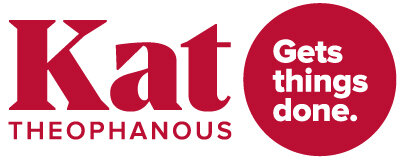Ms THEOPHANOUS (Northcote): It is my honour to speak on the inquiry into sustainable employment for disadvantaged jobseekers, which was referred to the Economy and Infrastructure Committee by the Legislative Assembly. As a member of the committee I gained great insight from the extensive consultation that was undertaken, which took us far and wide across Victoria to hear from key stakeholders as well as many current and former jobseekers. We heard many firsthand accounts from jobseekers who had experienced a range of challenges and barriers in their search for work, and we heard moving and inspirational accounts of successes and what finding meaningful employment has meant for many people and their families.
Initially I would like to express my deep thanks to the chair of the Economy and Infrastructure Committee, the member for Lara, who steered our work with immense sensitivity and compassion. I would also like to thank the other members of our committee, who at the time included the deputy chair, the member for Narracan; the member for Wendouree; the member for Sandringham; the member for Euroa; and the member for Tarneit. And it would be remiss of me not to also acknowledge the incredible work of the committee secretariat, who put in countless hours organising and coordinating the work of the committee as well as researching and coalescing the findings from the many submissions and hearings. In particular I would like to thank Kerryn Riseley, our committee manager; Marianna Stylianou, our research officer; and Janelle Spielvogel and Anna Scott, the administration officers.
The inquiry into sustainable employment for disadvantaged jobseekers was one which traversed a great many aspects of the lives of Victorians who are trying to find work and participate in our economy, and of course we know that a job is so much more than a pay cheque. We heard about the benefits of secure and sustainable employment to individuals, households and communities. We heard about the dignity of work and its power to improve mental health and wellbeing and create a sense of social inclusion. We heard about how financial security and independence reduces pressure on government services, delivering a huge social return and reducing social and economic inequalities. Yet we also heard that it is not a level playing field out there. Personal circumstances such as financial hardship, disability, limited English and caring responsibilities can create barriers to employment. Poor access to opportunities and resources can also create barriers by limiting people’s ability to gain skills, work experience and networking opportunities. Employers can also create barriers with unconscious bias, stigmatisation and in some cases discrimination, leaving people out. Without adequate support these complex challenges can lead to long-term joblessness, putting people at risk of poverty and poor physical and mental health.
Our committee has made 70 recommendations to government. They are wideranging because we know that there is no one-size-fits-all model. They cover aspects such as encouraging flexible work, supporting Aboriginal-controlled organisations to become training and employment service providers, fostering greater collaboration between Learn Locals and TAFEs, encouraging councils to develop and implement social procurement policies and making improvements to the Jobs Victoria Employment Network, as well as many more.
We know the coronavirus pandemic has had a significant impact on the Victorian labour market, including in my electorate of Northcote, where sectors like hospitality, higher education and creative industries have been hit hard. As a government we have recognised and responded to these challenges, delivering over $7 billion in economic supports for businesses and putting in place a Victorian jobs plan that will see 400 000 people back to work by 2025. An important part of this work must be generating opportunities for employment for those who are disadvantaged when it comes to the labour market, because the economic impacts of COVID-19 have not been experienced equally. Women, young people, those aged over 60, those in regional and remote communities and those with little work experience are some of the most impacted. I have been extremely pleased to see proactive incentives put in place by our government to create opportunities for people in these groups, whether that is through wage subsidies, labour hire initiatives or expanded opportunities for apprentices and traineeships. In my own electorate the Working for Victoria program has had an extraordinary impact.
As I have said, this is an extremely important report and should be used to inform our work as we recover from the pandemic in a way that responds to some of the fractures and inequalities in our systems and in our communities. I thank all of those who made submissions, both in writing and in person, and I commend the report to the house and to government.


